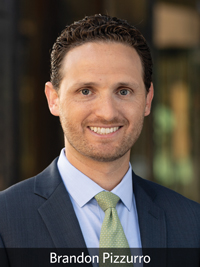Developing economies, especially those in Southeast Asia and Latin America, are set to come roaring back from the Covid-19 pandemic and will present strong investment opportunities, according to Brandon Pizzurro, portfolio manager for public markets at GuideStone Capital Management.
Emerging markets have been improving for a couple of years and are now poised to bounce back more quickly than developed economies from the downturns and volatility created by the pandemic, Pizzurro said in a recent interview. GuideStone is a Christian faith-based investment firm in Dallas that offers the GuideStone Emerging Markets Equity Fund (GEMZX).
 “Emerging markets are not what they used to be,” Pizzurro said. “They used to be commodity driven, but now provide a diversity of investments. An investor absolutely needs an active manager who can switch investments among countries, between different small asset classes, and among different sectors within the countries. You need to be able to maneuver."
“Emerging markets are not what they used to be,” Pizzurro said. “They used to be commodity driven, but now provide a diversity of investments. An investor absolutely needs an active manager who can switch investments among countries, between different small asset classes, and among different sectors within the countries. You need to be able to maneuver."
He noted that emerging markets never fully recovered from the financial crisis of 2008-2009 and consequently were undervalued for a decade. "Then they started coming back in the last two years,” Pizzurro said. “EMs are now at a nice inflection point.”
The sectors that look best in emerging markets are similar to those that look good internationally, he added. That includes the tech sector in general, and companies in the IT consultanting and chipmaking fields.
Since emerging-market investments, particularly in small- and mid-cap companies, require extensive due diligence and "boots on the ground" research, the pandemic has made the job a little more difficult by restricting travel, Pizzurro explained. But Asia and Latin America have dealt well with the pandemic, and those markets are facing fewer headwinds versus the developed world. “We have been getting good access to companies, even in the pandemic atmosphere,” he said.
GuideStone has four asset managers for its emerging markets fund: Wellington Management Company; Goldman Sachs Asset Management; RBC Global Asset Management and AQR Capital Management. “In a part of the industry where there are few women managers, two of the four asset managers for GuideStone are women,” Pizzurro said.
The GuideStone Emerging Markets Equity Fund contains a heavy dose large-cap companies, but also includes small- and mid-cap companies. The fund aims to capitalize on most of the market's upside while limiting dowside losses, he added.
“Since the onset of the restructure [of the fund] in July 2018 through October 2020, the fund has logged a superior Sharpe ratio versus the peer average,” Pizzurro said. “The Sharpe ratio is a measure of an investment’s return per unit of risk. Generally, the greater the value of the Sharpe ratio, the more attractive the risk-adjusted return. In addition, the fund routinely has a higher active share than the category peer average, indicating a differentiated and nuanced approach to EM exposure. Roughly 20% of the fund is invested in non-index EM stocks.”








